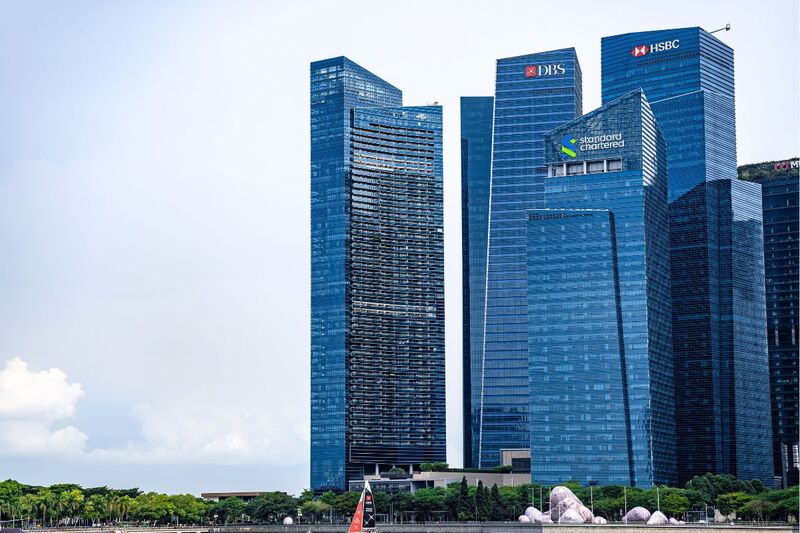🎓 Why a Master’s Degree is Your Game-Changer in Singapore’s Competitive Career Landscape
In Singapore’s fast-evolving economy, one thing is clear—standing still is falling behind. As digital disruption accelerates and industries shift, many professionals are turning to Master’s degrees as a strategic tool to sharpen their edge, accelerate career growth, and stay relevant in high-demand sectors like data analytics, AI, finance, and business leadership.
Whether you're a mid-career executive eyeing your next promotion or an employer looking to future-proof your team, this article breaks down why a postgraduate degree could be the smartest investment in 2025 and beyond.
🎯 Why More Professionals in Singapore Are Choosing Master’s Degrees
Master’s degree enrolments are rising across Singapore, driven by:
- Government-backed education subsidies
- Increasing job market competition
- The urgent need to future-proof skills
Institutions like NTU, NUS, SMU, and SUSS are offering flexible and industry-aligned Master’s programmes designed for working adults. From Data Science to Business Analytics and Cybersecurity, postgraduate education is becoming a powerful lever for those who want to lead rather than follow.
📈 The Data: Master’s Degrees Deliver Tangible ROI
- According to SGUniStats, graduates with Master’s degrees in high-demand fields like analytics, computing, and business earn median starting salaries of S$5,500 to S$6,200 monthly.
- A study by PSB Academy found that 56% of Master’s students in Singapore are mid-senior professionals, many pivoting into leadership or tech-forward roles.
- Employment rates for Master’s graduates in areas such as law, analytics, and computer science consistently exceed 90%.
In short: a Master’s degree doesn’t just look good on your résumé—it can fast-track your salary growth, expand job options, and open doors to executive-level roles.
🚀 Top Reasons to Pursue a Master’s Degree in Singapore
1. Upskilling for Emerging Industries
Master’s programmes provide deep expertise in digital transformation, machine learning, cybersecurity, fintech, and supply chain—skills in demand across Singapore’s tech and finance sectors.
2. Accelerated Career Progression
In many organisations, Master’s degree holders are prioritised for promotions, leadership tracks, and cross-border assignments. A postgraduate qualification often signals readiness for higher responsibility and strategic decision-making.
3. Flexibility for Working Adults
Most programmes offer part-time, modular, or hybrid options. Popular structures range from 12 to 24 months, allowing professionals to balance work, study, and personal commitments.
4. Access to Networks & Resources
Singapore’s universities are plugged into industry. Master’s students often gain access to exclusive hiring events, guest lectures, and alumni networks—valuable for career switches or cross-industry mobility.
📚 Most Popular Master’s Programmes in Singapore Today
💰 How Much Does a Master’s Degree Cost in Singapore?
- Tuition: Typically S$30,000 to S$65,000, depending on programme and university.
- Duration: Full-time (1–2 years), part-time (2–4 years).
- Subsidies: Singapore Citizens and PRs may enjoy subsidised tuition via MOE and SkillsFuture schemes.
- Credit Exemptions: Some institutions offer module waivers for relevant experience, shortening study duration and reducing cost.
🧠 Frequently Asked Questions (FAQs)
Q1: Is a Master’s degree necessary for career growth in Singapore?
While not mandatory, it gives professionals a clear advantage in securing senior roles, pivoting into high-growth industries, and commanding better pay.
Q2: Can I work full-time and still study?
Yes. Most Master’s programmes in Singapore cater to working professionals, with evening or weekend classes and online modules.
Q3: Which industries benefit most from postgraduate qualifications?
Tech, data, finance, business management, and logistics. These sectors value specialisation and are actively hiring postgraduates.
Q4: Are there financial aid options?
Yes. Singaporeans and PRs can tap into subsidies, grants, and SkillsFuture credits. Many universities also offer scholarships or employer sponsorship arrangements.
Q5: How do I choose the right Master’s programme?
Look at industry demand, course flexibility, university ranking, alumni outcomes, and how well the programme aligns with your career goals.
🎯 Take the Next Step with Reeracoen Singapore
✅ For companies: Hire talent with postgraduate expertise to future-proof your business
✅ For professionals: Explore career-advancing roles and education pathways
Singapore rewards those who invest in growth. If you’re ready to level up in 2025, a Master’s degree could be the launchpad to your next big move.
Disclaimer:
The information provided in our blog articles is intended for general informational purposes only. It is not a substitute for professional advice and should not be relied upon as such.
While we strive to provide accurate and up-to-date information, the ever-evolving nature of certain topics may result in content becoming outdated or inaccurate over time. Therefore, we recommend consulting with qualified professionals or experts in the respective fields for specific advice or guidance. Any actions taken based on the information contained in our blog articles are solely at the reader's discretion and risk. We do not assume any responsibility or liability for any loss, damage, or adverse consequences incurred as a result of such actions.
We may occasionally provide links to external websites or resources for further information or reference. These links are provided for convenience and do not imply endorsement or responsibility for the content or accuracy of these external sources. Our blog articles may also include personal opinions, views, or interpretations of the authors, which do not necessarily reflect the views of our organisation as a whole. We encourage readers to verify the accuracy and relevance of information presented in our blog articles and to seek professional advice when needed. Your use of this website and its content constitutes acceptance of this disclaimer.
References
1. NTU Master of Science in Data Science (MSDS)
2. SUSS Master of Analytics and Visualisation (MAVI)
3. SGUniStats – Singapore University Course & Employment Statistics
4. Amity Global Institute – Master’s Degrees in Singapore
5. PSB Academy – Master’s Degree Programmes
6. NUS MSc in Statistics
7. SMU Postgraduate Programmes
8. NTU MSc in Analytics






